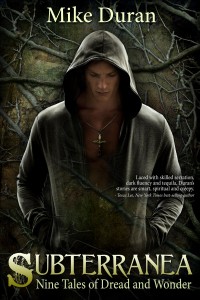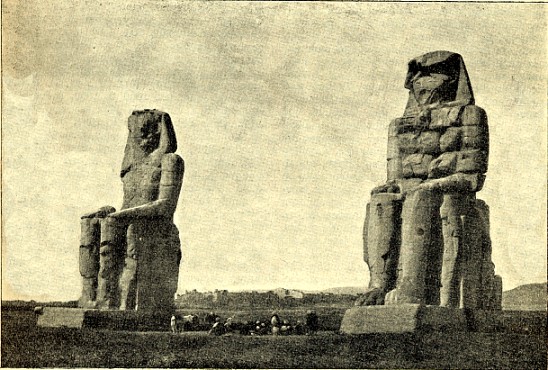“All fiction is largely autobiographical…”
— P.D. James
I suppose the question facing a lot of novelists is not IF your story should be autobiographical, but HOW autobiographical your story should be? It’s no secret that novelists assemble their stories from the stuff of experience, drawing from the places they’ve lived, the people they’ve met, and the lessons they’ve learned. Of course, this could be a tad unnerving when a relative discovers themselves speaking through one of your characters. Especially if that character is a pompous ass or a goody two-shoes.
I used to hedge at this notion. You know, I believed I could separate myself and my experience from my tales, forge characters from starstuff, as it were. Let alone, keep my family out of the telling. Silly me. Now, with a small, but growing, canon of stories behind me, my life is littered everywhere. At least, for those who have ears to hear.
One such “telling” came by way of Avram Davidson’s Adventures in Unhistory. Subtitled Conjectures on the Factual Foundations of Several Ancient Legends, the book covers the historical or (pseudo-historical) underpinnings of such basic mythological iconography as mermaids, werewolves, mandrake roots and Prester John. It’s a fun read and one that has sparked several conceptual brush fires in my noggin.
One was Vocal Memnon. It was just a reference in Davidson’s book, maybe a paragraph in passing, but the story intrigued me. So I did some research of my own.
Vocal Memnon were two 60 foot Colossi, carved of quartzite sandstone and seated in the Theban necropolis, along the Nile River near modern day Cairo. The statues had been commissioned by one of the Pharaohs to guard a sacred memorial temple. However, an earthquake partially destroyed one of them, fractured it in several places. From that point on, it sang every morning at the break of dawn, at least according to legend, a moan or whistle probably caused by temperature change or evaporation. (The scientific term is Solar Thermal Automata and the concept has been used in the development of specific audio technologies.)
 Even more fascinating was the mythology that arose around the singing Colossi.
Even more fascinating was the mythology that arose around the singing Colossi.
And this is where Vocal Memnon intersects a couple of my stories. For instance, I have included the myth in my short story Consonance (which is included in my anthology Subterranea) as well as in my second novel The Telling. What’s my infatuation with this odd archeological trivia? The Vocal Memnon myth embodies something autobiographical and deeply personal to me.
Cleo, the cephalopod-like extraterrestrial in Consonance explained it this way:
“…pilgrims flocked there. They said the lucky ones—the ones who heard [the Colossi singing]—got healed, prayers answered, wishes granted, things like that. For hundreds of years it went on, singing at sunrise, padding its stats, performing for all those sad lost souls. And then it stopped. Just never uttered another sound.”
She wandered to the vanity, swung one of her trunks over her shoulder, and toyed aimlessly with the knuckles.
“But why?” She stared quizzically into space. “Why, after all that time, does the singing stop?”
The protag of that short story eventually unravels the myth by discovering his own gifting — a gift that heals and helps others.
It sang from its brokenness, isn’t that what she’d said? The Colossi, shorn of its majesty only to find glory in its diminishment.
Singing from brokenness. Finding glory in diminishment.
Perhaps I have an inflated sense of self-worth. But I’ve grown to feel that — I feel insecure even saying this — God has given me a gift that can help and heal others. The problem was / is that that gift only functions through brokenness. I had to / have to diminish and be made low for the singing to start.
Which is why this line, toward the end of my second novel The Telling occurs. It is spoken by one of my secondary protags, an exhortation to the scarred and troubled young prophet Zeph Walker, who is finding his way home:
“Sing!” Little Weaver shouted. “Sing, Brother Walker! Out of your brokenness, sing!“
Few, if any, would know what I’m referring to in those snippets. But having stumbled through life, fallen out of the ministry, railed against God and resisted my calling, any goodness that comes out of my life now seems like a song of brokenness. Like Jacob wrestling the angel, God has “blessed” me with a limp. Thus, I must find glory not in acclaim, but in diminishment.
Lord, let it be.
So, yeah, my fiction is autobiographical. How about yours?
















In the way you state it, yeah it’s obviously autobiographical. All of that stuff that resonates with my soul is bound to end up in my stories. As far as more tangible ways, it depends on the story. Some of more autobiographical than others.
“Perhaps I have an inflated sense of self-worth. But I’ve grown to feel that — I feel insecure even saying this — God has given me a gift that can help and heal others. The problem was / is that that gift only functions through brokenness. I had to / have to diminish and be made low for the singing to start.”
Understanding your gifts is a sign or maturity, not an inflated sense of self-worth. That is a beautiful gift to have. And as long as you’re walking with God, he’ll build you up inside the way he wants you.
Mine Toch Island series is very autobiographical. I feel like I could write a whole book explaining all the relationships between the characters and story elements and my life. From simple things like the house my main character lives in at the beginning of the book being based on the house I grew up in (including the yard and Angel’s “reading tree”), to my fictional Platinum Oak that can heal nearly any disease representing the chemo I went through that cured me of cancer (cisplatin is platinum-based). I almost can’t think of a character or story element that doesn’t represent something or someone important in my life in my series.
Not as sure about the short stories I’ve written. I would have to think about that…
I do think that the best writing comes from deep places inside us, places shaped by our experience, our observations. The tricky thing is that you can’t look at someone’s stories and know what part is fiction and what part is autobiography. It’s entirely possible that an author can have a theme in their writing that is based on something they witnessed that impacted them deeply, but that they did not experience first-hand (sexual abuse, drug addiction, any number of things).
When I get to know someone in person, that’s when things start making sense and I can get a better idea of what part of the fiction springs from their life and what part from their imagination.
It wasn’t until I got to know a number of fiction authors in person that I realized how true this is. I didn’t even notice it in my own writing — but once I noticed it in others, I could see it in mine.
It was my wife who first saw what I did not intend or recognize: there was a big piece of me in the main characters of the two novels I have yet to finish. Thus the reason I will not show anything of my next one to her until finished.
What you wisely noted is so true. This is why I think anyone who doesn’t believe their world view or personal experience is not somehow a part of their writing is fooling themself.
Well, yes and no. Writers do write best from what they know. Often best about the lessons and observations made when young–Willa Cather said the life experiences of the first 15 years tend to dominate any writer’s work. But that doesn’t mean A) another reader (even one with close personal experience with the writer) can recognize what is autobiographical and what is fantasy/reality, or B) the writer himself/herself recognizes the autobiographical aspects.
We craft the logic of our stories’ universes as we understand reality and truth, which certainly shows up as autobiographical, but that doesn’t mean we know where our understanding splits from reality. A lot of writers, I suspect, don’t think that hard about their writing. Or that honestly. I, for example, often kill off a parent somewhere in a first draft. I usually catch it in time to edit the story so that it focuses better on the themes and conflict of the characters, but those deaths slip through sometimes. But I know to watch for that. I know my issues are not always relevant to the story. Even though it is a story I’ve developed on my own. I can think of writers (published and aspiring) who aren’t aware of the autobiographical nature of their work. But what I see in them or in their writing isn’t the same as what they see.
I do believe a good author needs to look at his/her work honestly, but there is an element of Eustace Scrubb’s dragon to this. No matter how many times he scratched his scales, he never cut deep enough to get to his heart. Aslan had to do it for him. Whom do we trust to cut though the scaly armor of wrong thinking?
Mike, I always appreciate how autobiographical you are in your blogs. That’s what adds to their power. It’s what adds to your fiction. And it’s what adds to your testimony and ability to glorify God. So many scriptures jumped out at me as I read this blog post, as it’s incredibly personal–for me! The theme of singing from your brokenness hits home with me, as I suspect it will for most people who continue getting closer to Jesus.
It sounds strange, but God is glorified in our brokenness. It’s part of redemption. We live in a fallen world. Bad stuff happens to us here. Bad stuff happens through us here. Being fallen, we are often ‘bad stuff’ personified. But God promises to redeem all of it (Rom 8:28) He says that He purposes to use the weak, broken and ignoble because he’ll get the glory. He says that He will comfort us so that our hurts can comfort others.
If we must be broken, at least we can sing! Beautiful, brother.
I find that my work is usually intensely autobiographical. There’s no way for it not to be. But I’m generally careful not to use conversation snippets, or details that will hint as to where something comes from. And I generally ‘amp up’ details to the point of ‘unrecognizability’.
Anyway… Another great post, Mike.